Professor Nguyen Quoc Hung was born into a poor family and suffered from epilepsy since childhood, but he overcame difficulties to become a scientist and own 3 inventions in the field of mechanics.
Professor Hung, 49 years old, is currently the head of the Faculty of Engineering, Vietnam-Germany University, Vice President of the Vietnam Mechanics Association. With more than 100 international articles, including about 70 ISI articles, few people would think that he had a difficult and sickly childhood.
He said that he was born into a farming family, migrating from the Central region to work in the new economy in Xuan Son commune, Chau Duc district, Ba Ria - Vung Tau in the 1980s. His parents reclaimed land and started a business by growing rice, corn, cassava... Since he was young, one day he went to school, the other day Hung helped his family herd more than 10 cows in the remote mountainous area of Xuan Son commune, Chau Thanh district, Dong Nai province (now Chau Duc district, Ba Ria-Vung Tau).
Poor family, at the age of 10, Hung suffered from epilepsy, his body convulsed continuously with severe headaches every time his body temperature increased. Gradually, the disease became chronic with increasing frequency. The disease occurred even when Hung expressed strong emotions such as joy, sadness, stress. Every time he had a seizure, the risk of biting his tongue was very high. That is why most of Hung's family members have scars on their fingers. Because they quickly put their hands in their mouths to prevent Hung from biting his tongue without having time to tear off the cloth wrapped around their fingertips.
Every time there was an exam, Hung was arranged to do the test in a separate room so that the teacher could monitor him better. By the time he was in 11th grade, Hung was cured. "If epilepsy is severe and lasts longer, it can affect intelligence. I consider myself lucky," Professor Hung recalled.
In 1992, Hung passed the entrance exam to the Faculty of Mechanical Engineering at Ho Chi Minh City University of Technology. At that time, the trend of working in the aviation industry with high income and being able to see the sky was the dream of many young people. That motivated the student to apply for a 2-year air traffic control course. After completing the course and graduating from university, Hung worked as an air traffic controller.
The job paid well, but Hung "felt guilty about his university degree in mechanical engineering and felt he was not suited for his current job." In addition, the air traffic control job required meticulousness, carefulness and responsibility for the lives of hundreds of people, which were pressures that made Hung change direction. At that time, while still working, Hung continued to study for a master's degree in engineering mechanics at the University of Liège in Belgium. After completing his master's degree in 2000, Hung became a lecturer at Industrial College 4 (now Ho Chi Minh City University of Industry).
Hung began in-depth research on solid mechanics when he was a PhD student at Inha University (Korea) from 2005 - 2009 and had published research.
Professor Hung shared that although each experience in science is difficult, it brings joy. When he thinks of new ideas, he feels drawn to them. He often writes down ideas, sketches new principles on pieces of paper, then puts them on the table and tries to verify them, evaluate their feasibility, and find a suitable direction.
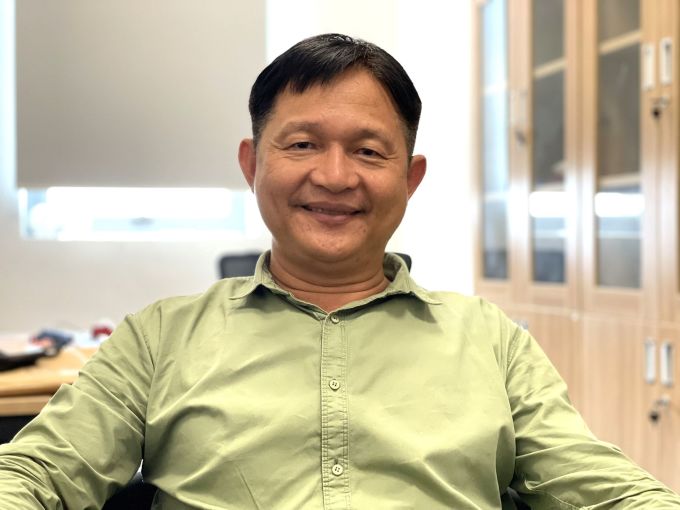
Professor Nguyen Quoc Hung at Vietnam-Germany University. Photo: Ha An
He said that the first time he published an article in an international journal, he had to revise it at least 20 times. His first research paper on smart materials was published in the journal Smart Materials and Structures (UK).
According to him, the first article is very important for every scientist because it helps them confidently invest their efforts in future projects. From basic research, Professor Hung and his colleagues develop practical models when studying smart materials applied to specific systems.
To date, he has three patents on solid mechanics granted by the United States. One of them is the invention of using smart fluid (magnetic rheology) that can control its solidification by using a magnetic field. When the fluid solidifies, it will act as a brake pad, creating friction to reduce speed. This technology can replace the use of mechanical brakes using friction. Professor Hung's invention proposes a new model of magnetic rheology brake with an optimal magnetic field, easy to manufacture and maintain, and compact in size.
With the second invention, he and his research team proposed a friction-free two-way torque generating mechanism using smart fluids. This mechanism is often used for force feedback systems to create precise sensations for the operator in surgical robotic systems, remote-controlled robots working in hazardous environments, etc. The team also researched new optimization algorithms, giving fast and accurate results in the field of mechanics and was granted a third patent.
The research is considered new in solid mechanics, with potential applications in using smart fluids for braking systems, force feedback systems for robotic arms, shock absorbers, etc.
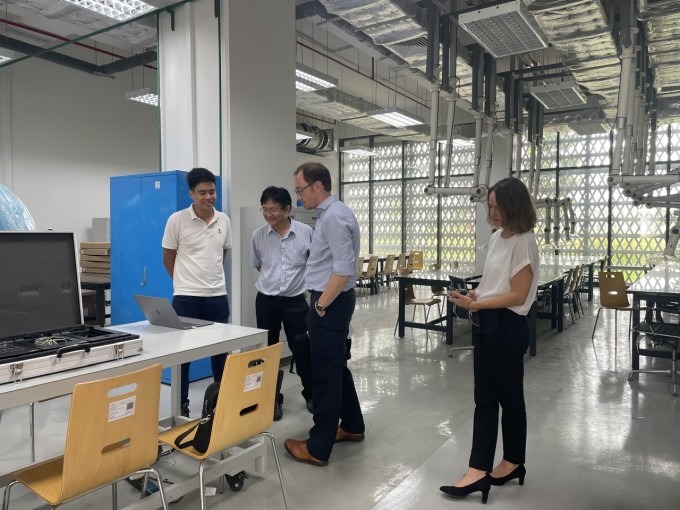
Professor Hung (second from left) at the Faculty of Engineering lab. Photo: NVCC
Although he has been granted a number of patents, Professor Hung believes that the value of research must be demonstrated through practical application. Patents must be purchased by businesses. During his research time in Korea, he found that universities do a very good job of introducing research results to businesses for application. He hopes that universities in Vietnam will do this more to demonstrate the true nature and meaning of patents. "In reality, when making patents, especially those granted by the US, the cost will be very high. Therefore, commercializing research needs to be a top priority for scientists," Professor Hung said.
He said that in the coming time, he will introduce patented inventions to businesses so that the technology can be applied soon.
Dr. Ha Thuc Vien, Vice President of Vietnam-Germany University, assessed that in more than 7 years working at the university, Professor Hung actively participated in building training programs from undergraduate to doctoral levels and developing research infrastructure. He is passionate about teaching, doing science and developing the team of young researchers in the university's engineering department.
Ha An
Source link


![[Photo] Looking back at the impressive moments of the Vietnamese rescue team in Myanmar](https://vstatic.vietnam.vn/vietnam/resource/IMAGE/2025/4/11/5623ca902a934e19b604c718265249d0)
![[Photo] "Beauties" participate in the parade rehearsal at Bien Hoa airport](https://vstatic.vietnam.vn/vietnam/resource/IMAGE/2025/4/11/155502af3384431e918de0e2e585d13a)




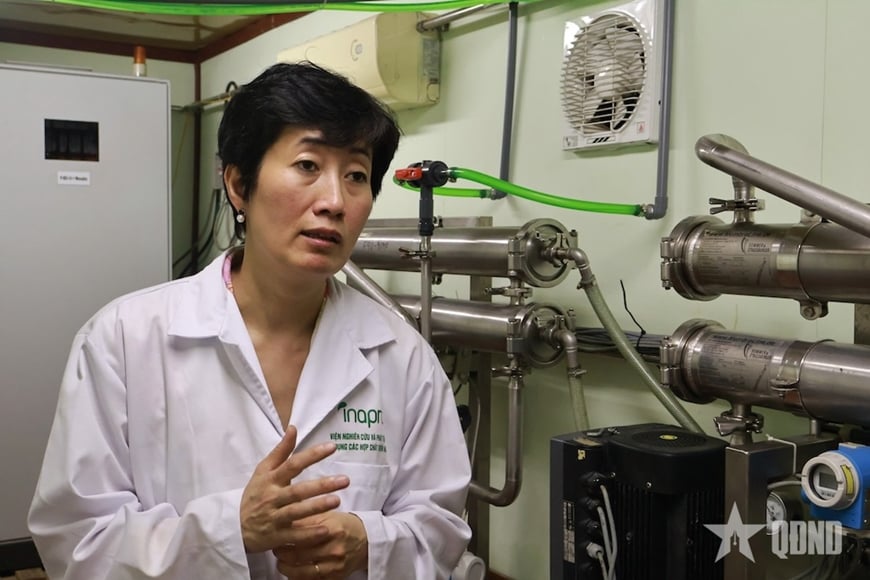

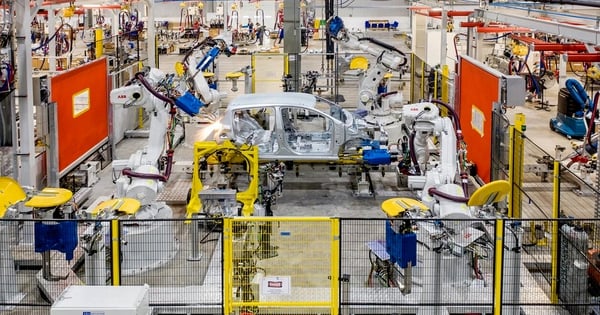

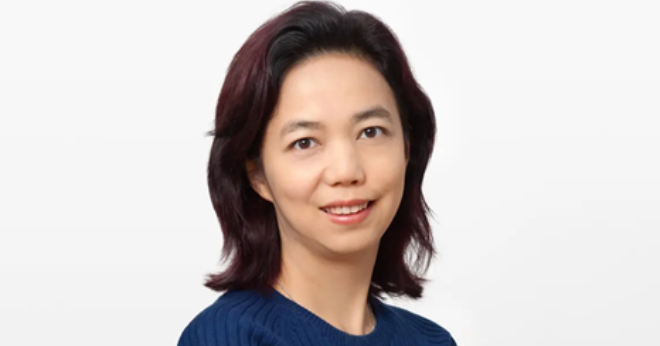

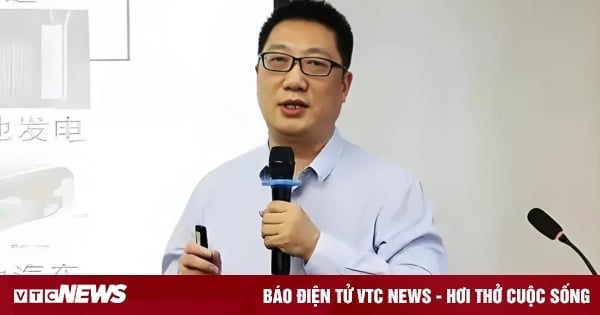






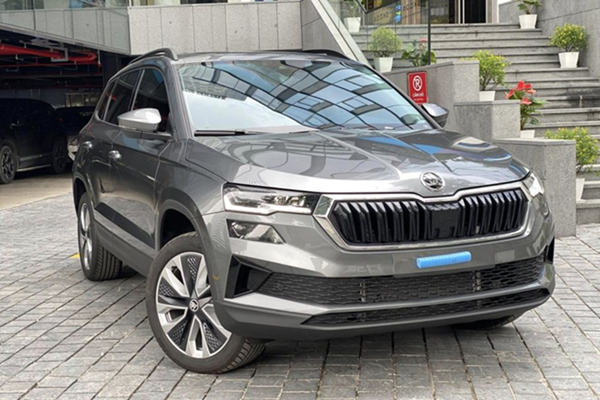
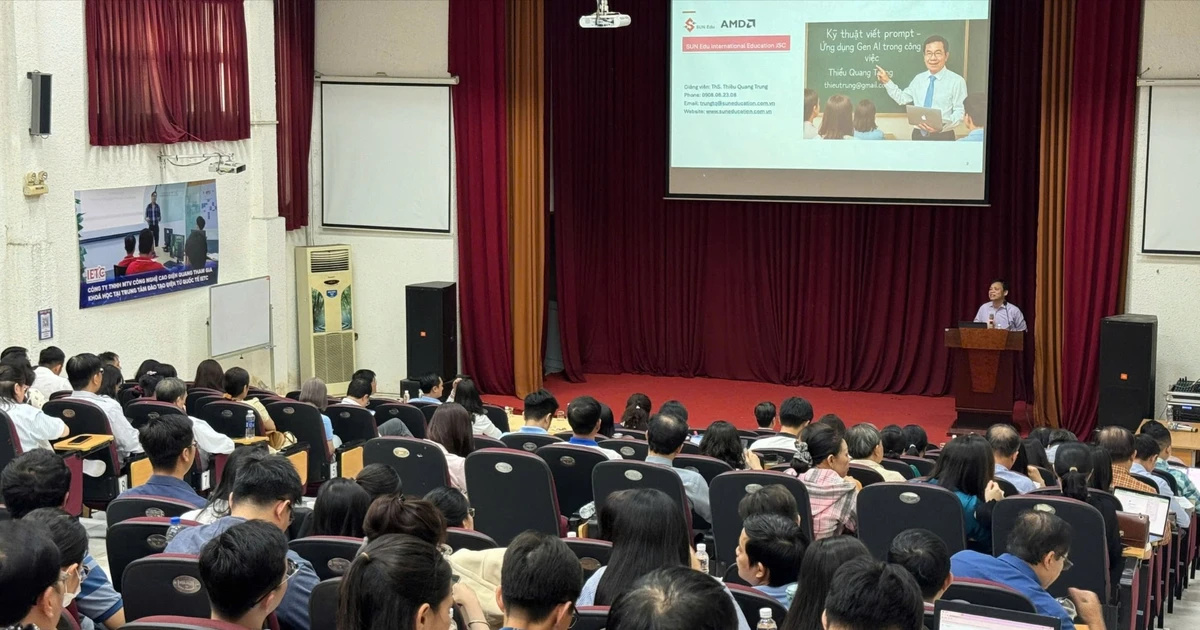
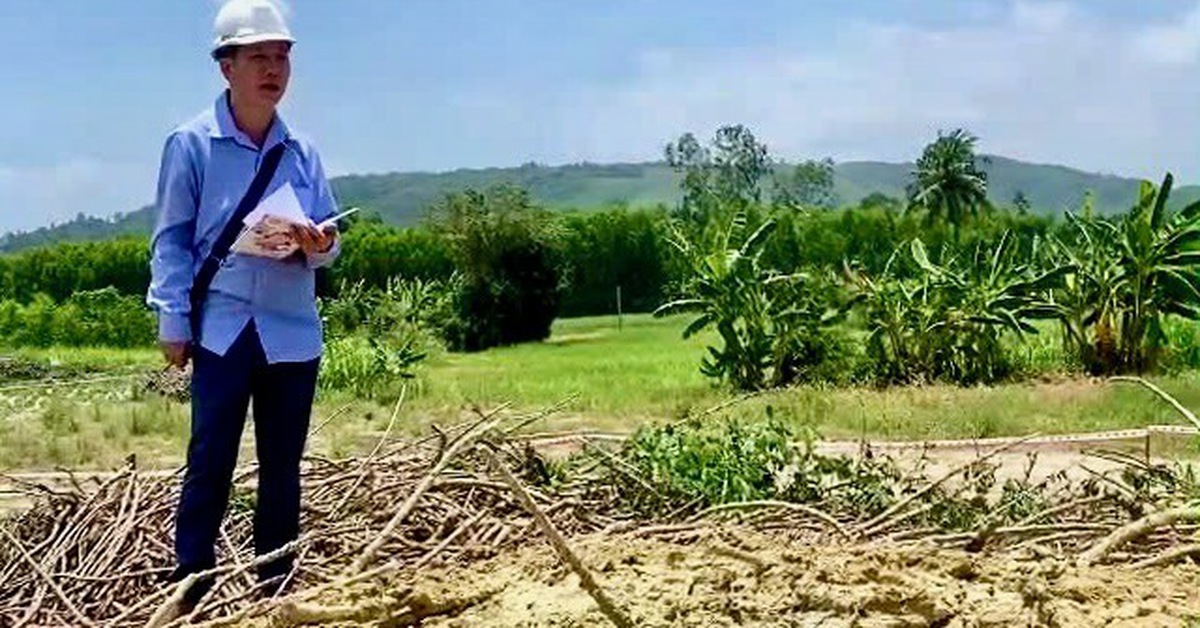
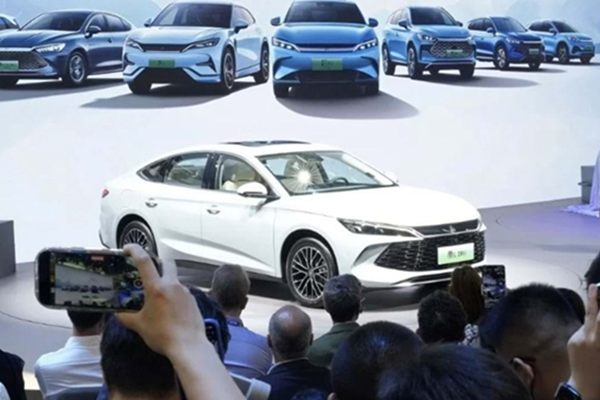
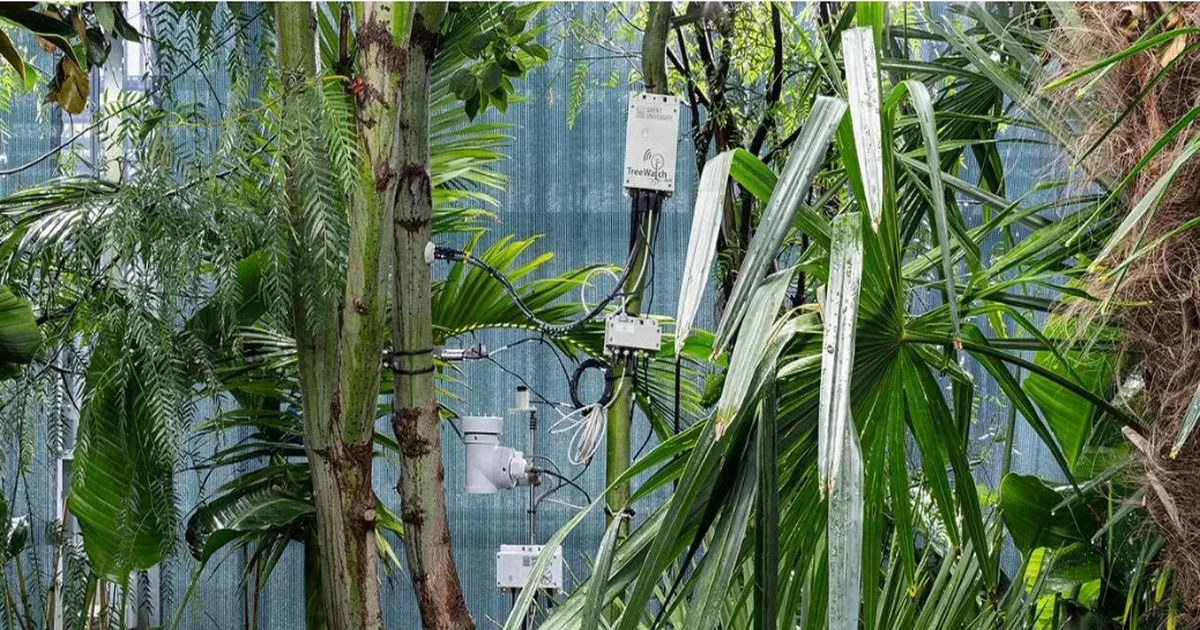








![[Photo] Summary of parade practice in preparation for the April 30th celebration](https://vstatic.vietnam.vn/vietnam/resource/IMAGE/2025/4/11/78cfee0f2cc045b387ff1a4362b5950f)













































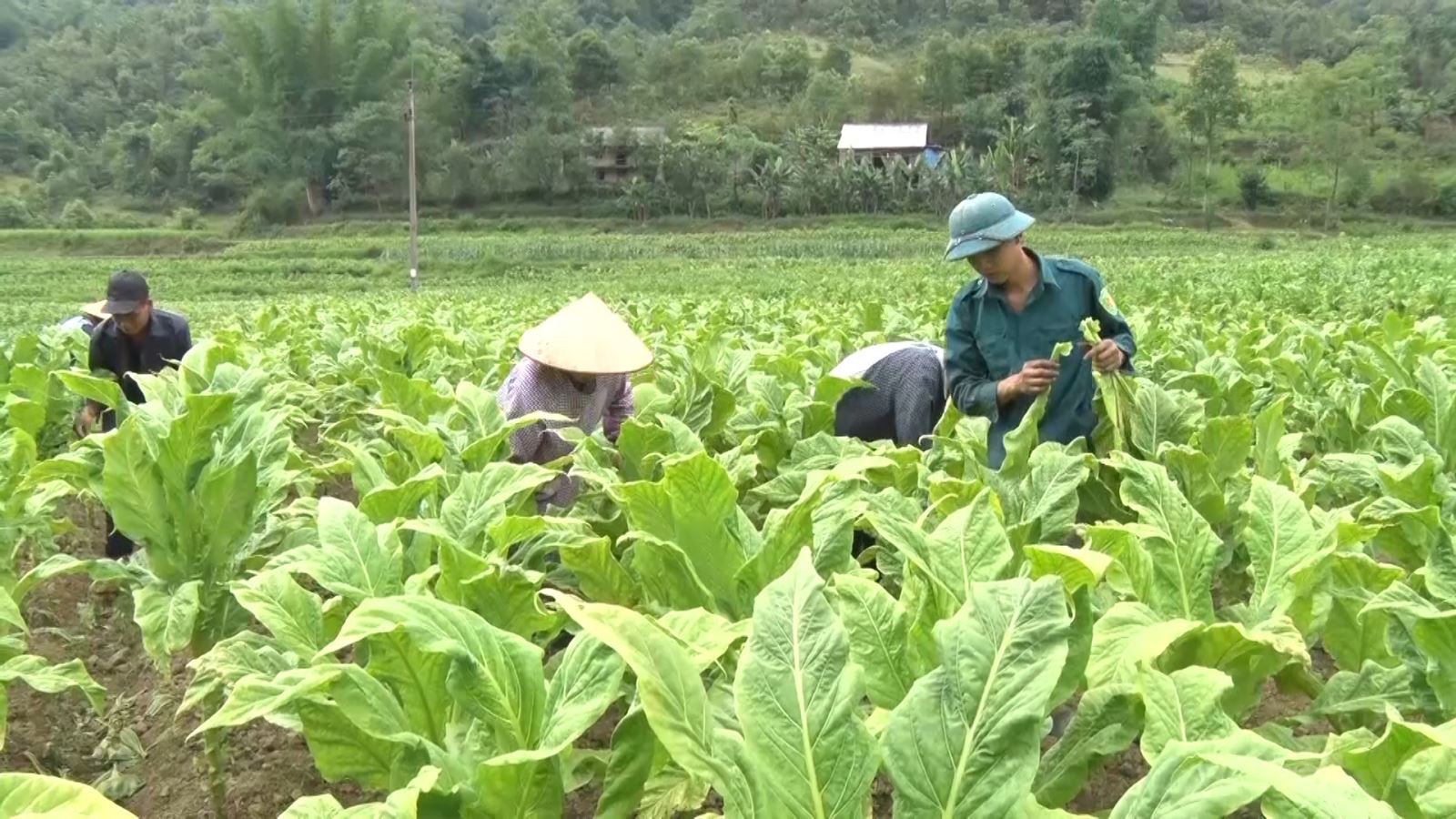
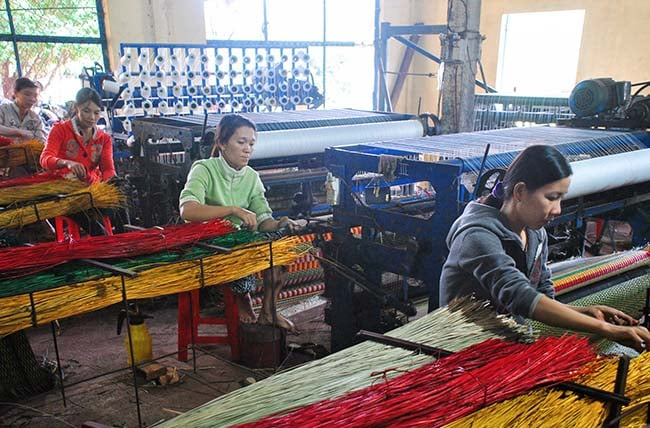
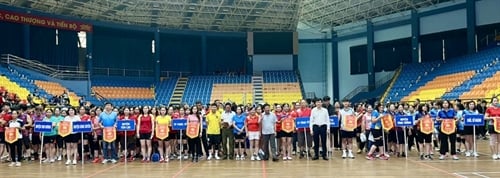











Comment (0)